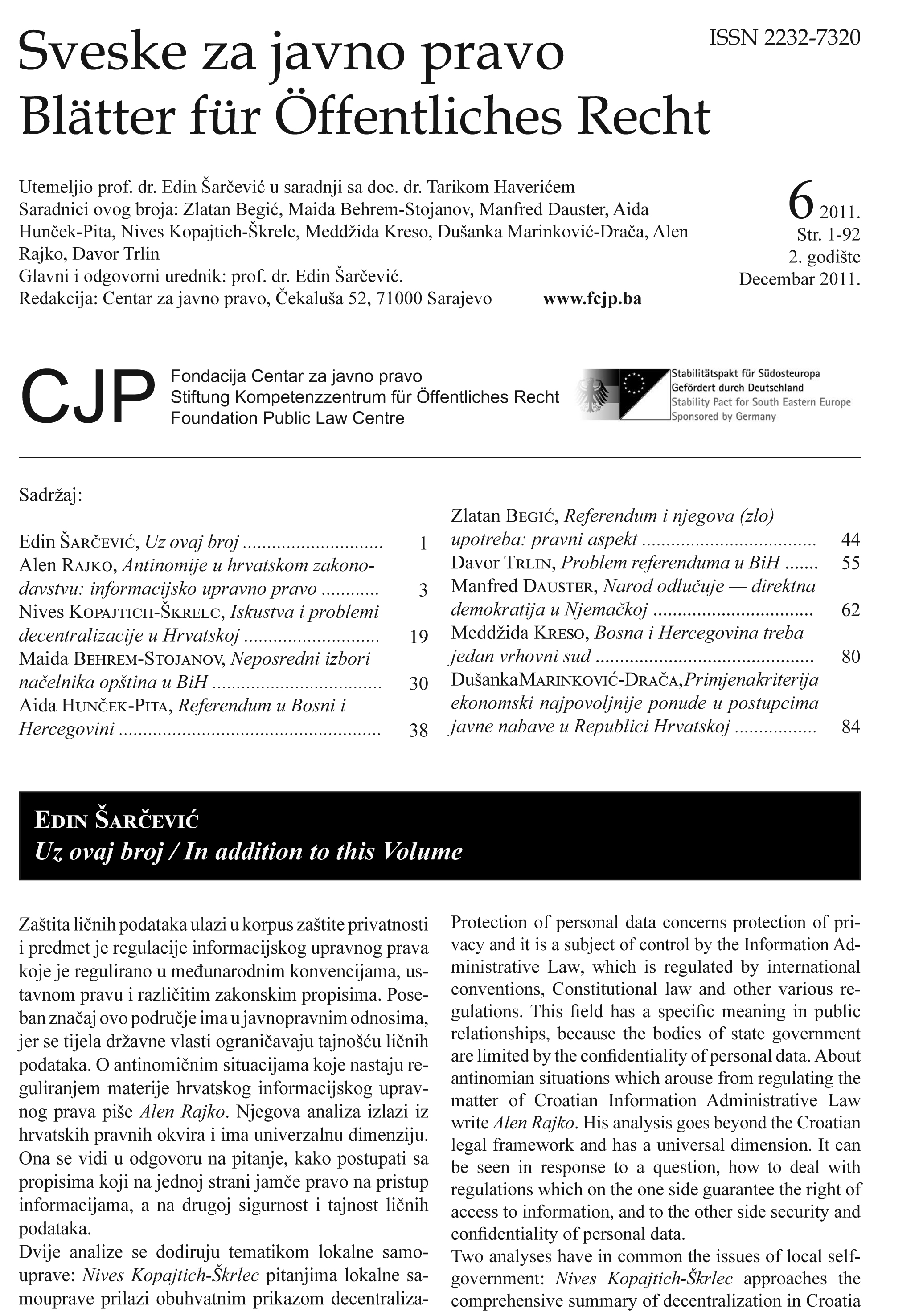Iskustva i problemi decentralizacije u Hrvatskoj
Experiences and problems of decentralization in Croatia
Author(s): Nives Kopajtich-ŠkrlecSubject(s): Law, Constitution, Jurisprudence, Civil Law, Governance, Government/Political systems
Published by: Fondacija Centar za javno pravo
Keywords: Republic of Croatia; decentralization; local government units;
Summary/Abstract: The text gives a short overview of Croatian experiences in the process of decentralization since establishment of local government system in 1992 until today. This process is characterized with a principle readiness to decentralize tasks, authorities, competences as well as financial resources and to strengthen local government units – in the first place cities, as gravitational and economic centres. Unfortunately, systematic and wellthought decentralization of tasks and strengthening of local government capacities are missing in practice due to various factors and reasons, primarily and insurmountably due to the loss of dialogue, understanding and trust between state and local government. Throughout this period, a serious decentralization was noted in 2001, when authorities in primary and secondary education, health and social welfare were transferred to cities and counties; and in 2005 when pursuant to the Law on Local and Regional Government, the unanimous and monotype concept of local government, in which all local governments regardless of their diversity and diametrically opposed potentials have the same status, rights and responsibilities – was aborted. The process of decentralization continued in 2008 in the sphere of spatial planning and construction, when large cities, county seats and counties were given the authorities to issue construction permits and acts. One of the largest concerns and common practice in Croatia is the fact that decentralization of tasks is not followed by fiscal decentralization, necessary to organize successful delivery of decentralized services and that cities are expected to support financially the decentralized tasks, regardless of their already weakened fiscal potential. On the other hand, cities suffer from the decrease of their budgetary income and insufficient financial capacities to ensure regular ever-growing expenditures. Therefore, the Association of Cities, national and non-partisan organization of cities in Croatia, supports joint efforts to harmonize legislative framework of local government system with the European Charter on Local Self-Government in order to ensure consultations between central state and local government bodies.
Journal: Sveske za javno pravo
- Issue Year: 2/2011
- Issue No: 6
- Page Range: 19-29
- Page Count: 11
- Language: Bosnian, Croatian, Serbian

